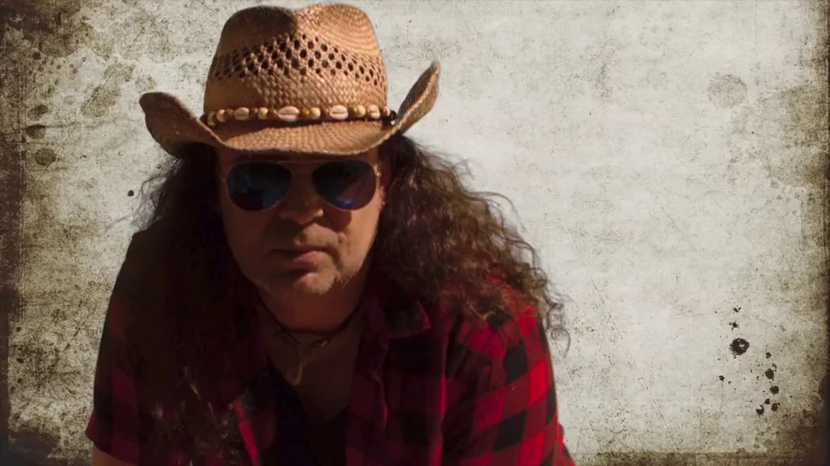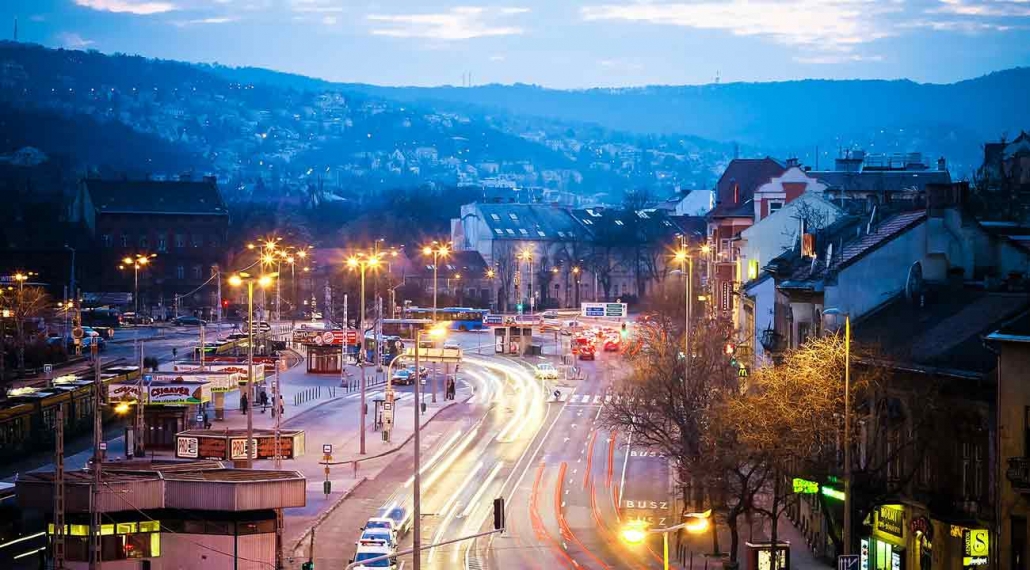When the time comes to retire will you be ready to live in the same country in which you have always lived? Can you afford your house payments on just your retirement income?
by Gary Lukatch
How about renting an apartment in the middle of town? Payments, upkeep and maintenance on your car(s)? Food, utilities, entertainment? As costs increase, your fixed retirement income may not be enough to keep up with all the changes.
But there are still places in the world where your retirement money will stretch further than at home. Today I’ll tell you about one of them: Hungary. To be specific, Budapest, Hungary. I moved here in 1999 to teach English as a foreign language, with retirement in mind. Prices for everything were super cheap back then; people who lived in Vienna even came to Budapest to shop.
Well, things never stay the same. Over the years prices have, of course, risen, although not as much as you’d think. Hungary is no longer dirt-cheap. But Budapest is still good value for people who want to have a high standard of living for less. Retirees moving to Budapest from a similarly-sized city in Western Europe or North America can easily cut their expenses in half. And the rest of the country costs even less.
Estimates of how many expatriates live here range from 30,000 to 50,000; in fact, there are enough “expats” in Budapest to support business newspapers and magazines in English. So you won’t be all alone if you choose to move here.
I was earning more than 13 million forints (in 1999 Hungarian money – HUF, or forints) annual gross in the United States, working in the financial industry. It was always steady, reliable work, but not the best-paid industry available. When I moved to Budapest and began teaching English, my monthly net earnings after one year were around 135,000 forints per month. Then increasing to around 338,000 forints per month after five years. I took a huge initial pay cut, but I was one-thousand percent happier. Why? Read on.
Why Retire to Hungary?
After teaching English in Budapest for eight years, I retired and I still live a much better life than I could in the US with comparable spending. The cost of monthly house payments, plus car expenses, would be more than my monthly retirement income, which is around 475,000 HUF net. Here in Budapest, my monthly flat rental, plus utilities, averages around 80,000 HUF ($400 US), in the city centre.
Budapest’s public transportation system is excellent, so I don’t need a car; in fact, I haven’t even driven a car since 1999. I eat out several times a week and I still have enough money to travel wherever and whenever I want. I have now been to 58 countries, and I still take around five or six trips each year.
I’ve watched life in Budapest get easier and easier as the years have gone by. This has been partly through my personal adjustments, and partly because the level of English fluency locally has gotten steadily better.
Hungary joined the European Union in 2004, but the country still uses the Forint, which is a volatile currency. Prices quoted here are now based on 280 forints to the dollar, but I’ve seen it as low as 148 and as high as 300. So check the current rate before cursing my name because prices have changed.
The countryside of Hungary is still quite cheap, but few expats live in the rural areas unless they’re in the wine industry. Most choose to live in Budapest, around Lake Balaton, or in one of the smaller cities like Egér or Pécs.
Hungary got hit hard in the European economic crisis like many other nations on the continent, but has recovered faster. The official unemployment rate was 8% in mid-2014, which looks downright glorious compared to Italy, Spain, Greece, or Portugal. Hungary feels like a nation on the rise and young people are displaying something not seen much in the past couple hundred years of Hungary’s history: optimism.
Housing Costs in Hungary
The residents of Hungary figure their rent costs in hundreds, not thousands, of dollars. You won’t find many single people or couples paying more than $1,200 (about 270,000 HUF per month), even in the capital. When you get into smaller towns, you can get a house for that. In fact, most locals pay between $200 and $500 a month rent for an apartment, not including utility charges. In the southern wine region, there are houses with a nice garden going for the same monthly rental.
I know an expat from New Zealand working for a winery by Lake Balaton, who was paying $210 (47,250 HUF) a month for his two-bedroom apartment with a lake-view balcony. I pay just under $300 for my apartment in District 5, one of the most desirable and central areas of the city. If you decide to buy something eventually, which you can do freely as a foreigner, a typical apartment in Budapest will cost around 80 million HUF, dependent on size and location.
Health Care Costs
In Hungary, medical care is good, dental care is great. With the rise of cross-border medical treatment happening in many places in the world, Hungary has jumped on the trend with both feet. Many residents of the UK and Ireland come here to have dental work done or to receive good medical care at a discount. I
n addition to standard dental care over the years, I had to have dental implants a few years ago. While in the US, I would have had to pay several thousand dollars; in Budapest, the charge for two implants was just over $800.
Getting a cleaning and check-up at the dentist is around $40; getting a set of x-rays is about that much again.
Food & Drink
Two people can usually have a good cloth-napkin dinner with wine for around $50. If you eat at more humble places, a soup will be a dollar or two and main dishes range from $3 to $7. When you shop in the market, prices are at the low end for Europe. You can get rolls for 10-25 cents each or a huge baguette for a dollar or less. Get 100 grams (around 1/5 of a pound) of good cheese for a dollar, 100 grams of good local sausage for $2, and a jar of pickled veggies for another dollar or so.
For a dollar or less, you can generally buy 100 grams of any of the following items in the market: raisins, peanuts, sunflower seeds, banana chips, or dried apricots. Or you can get a kilo of seasonal fruit or peppers, cabbage, potatoes, radishes, or carrots. A big bunch of white asparagus runs about a dollar. A family of four would probably spend $120-$160 a week on groceries, not including wine.
Hungarian wine
Hungarian wine should be known around the world, but the Soviet occupation days seriously hurt its reputation, so for now it’s some of the best value in the world. You can find a nice drinkable table wine bottle in a store for $4, something quite good for $6 to $8. If you spend over $12 you might end up with something from a “winemaker of the year” who has adorned Hungarian magazine covers.
As Hungary was once part of the Austro-Hungarian Empire, you can get a killer coffee and pastry here just as you can in Vienna – but for one third of the price. After you do a double-take at your low bill in a wine bar, finish with a coffee and dessert for another nice surprise.
Transportation Costs
Getting around Hungary is relatively cheap by bus or train when you want to get out of town. Figure on $10-$12 for a trip of two hours, or $30 to go as far as you can possibly go within Hungary. Seniors and young children travel free. The longest ride on the suburban railway out of Budapest (30 kilometers) is just $2.50.
Budapest has a fantastic metro and while it’s no real bargain on a ride-by-ride basis (around $1.40 per ride), a monthly pass that also works for the trams and buses is a good value at around $35. If you’re of retirement age, you might squeak by for free and EU citizens over the age of 65 can legally travel on the entire public transport system, free of charge.
Apart from the ride from the airport, taxis in Hungary are a bargain. In general you can get around the center of Budapest in a cab for $3 to $7. It’s around $1.80 to start and $1 for each kilometer, so it’s hard to spend $10 anywhere unless it’s a long haul. Like much of Europe, this country is set up well for those on a bicycle and some expatriates use a bike as their main means of transport.
In Budapest there are lots of dedicated bike lanes and the city recently introduced the new city bikes, a pay-and-ride bicycle system used successfully in other European capitals. In the countryside there’s not nearly such an abundance of cars as you see in the capital.
Frequent promotions on the train system and Eurolines bus make international travel from here a bargain. If you plan ahead you can get to Vienna for less than $20 or to beach locations of Greece, Bulgaria, or Croatia for around $60.
Other Costs
If you pay your own utilities they can vary greatly by the season. My utilities are a good example, going from $30 in summer to $60 a month in winter. My place is not the best insulated in town, so I pay more in the winter for heat. In the summer, utilities are much lower.
Internet plus television cable service is $15 to $30 per month depending on speed and if you want a great connection, you can usually get it in the cities. The lowest-priced speed is generally 5 mbps, which is fine for a lot of people.
The land of Liszt and Bartok has an abundance of cultural performances going on at all times, from high-brow opera in the capital to an annual festival of wine songs in the south each year. Performances that aren’t free are very cheap by European standards.
The theatre is amazing here; the cost of going to a ballet or opera can nearly bankrupt you in Australia or New York City; here it’s for everyone. Tickets usually start at $5. If you buy really great seats on a weekend for a popular show it might cost you all of $25.
Visas in Hungary
Hungary is part of the Schengen Agreement covering much of the European Union. This means you can’t just stick around here on a tourist visa. You get three months upon entering the zone, but after that you have to leave the whole Schengen area for three months before returning.
No problem if you’re only coming for the summer; terrible if you want to settle down for longer. To get residency without being tied to a specific employer, you generally have to show you’re doing work a local can’t do, like teaching English. Or you have to show that you’re self-supported by income from abroad e.g. a retirement pension.
You can find a link to your embassy at the following site: http://www.kulugyminiszterium.hu/dtwebe/Irodak.aspx Check out your embassy website to see a sample of costs and documents needed and to be warned in case of changing requirements.
A work visa is good for a 3 years and renewable. Expect to endure a lot of bureaucracy and if you don’t have a college diploma, it’s going to be even tougher. You theoretically have to apply in your own country and will then have 30 days after entering Hungary to get the local paperwork sorted out.
If you’re interested in knowing more about the process of gaining legal residence in Hungary as a retiree, please contact Stuart McAlister from Inter Relocation at [email protected].
Most people who want to stick around either get a work permit connected to a specific job and company, or a residence permit that’s not tied to one employer. If you wish to gain permanent residence, you can apply after being in the country for five years. This costs money for a lawyer and requires a lot of additional paperwork.
Most of the items need to be translated into Hungarian as well, plus you have to show proof of health insurance or buy into the Hungarian health care plan. If you have Hungarian blood, you may have an advantage, but gaining citizenship will still require extensive paperwork and a workable knowledge of the Hungarian language.
Hungarian Language
Hungarian is an especially tough language to crack, but you’ll often need at least some basics when you get outside the capital. Many courses are offered through local language schools in Budapest, which should get you started on what you need to know. Of course, so many more people speak English now than when I moved here that it’s much, much easier to get along these days.
For all of your relocation needs, of course, your friendly English-speaking Representative at Inter Relocation is ready and able to help you define your objectives and arrange for pretty much all documentation.
Still not sure about retirement in Budapest? Pay us a visit and check out the city and environs. Conde Nast travelers recently voted Budapest one of the top places in the world to visit, and The City on the Danube was also voted Europe’s Most Welcoming City. Budapest will no doubt cast its spell on you as it has on me and so many other foreigners. It really is a magical city on the Danube.
Related Resources:
Book: Getting Out: Your Guide to Leaving America, by Mark Ehrman
Book: A Better Life for Half the Price, a new book by Tim Leffel, author of The World’s Cheapest Destinations: 21 Countries Where Your Money is Worth a Fortune.
Various websites offer information on living abroad; look under ‘Expats’ and the country of your choice.






